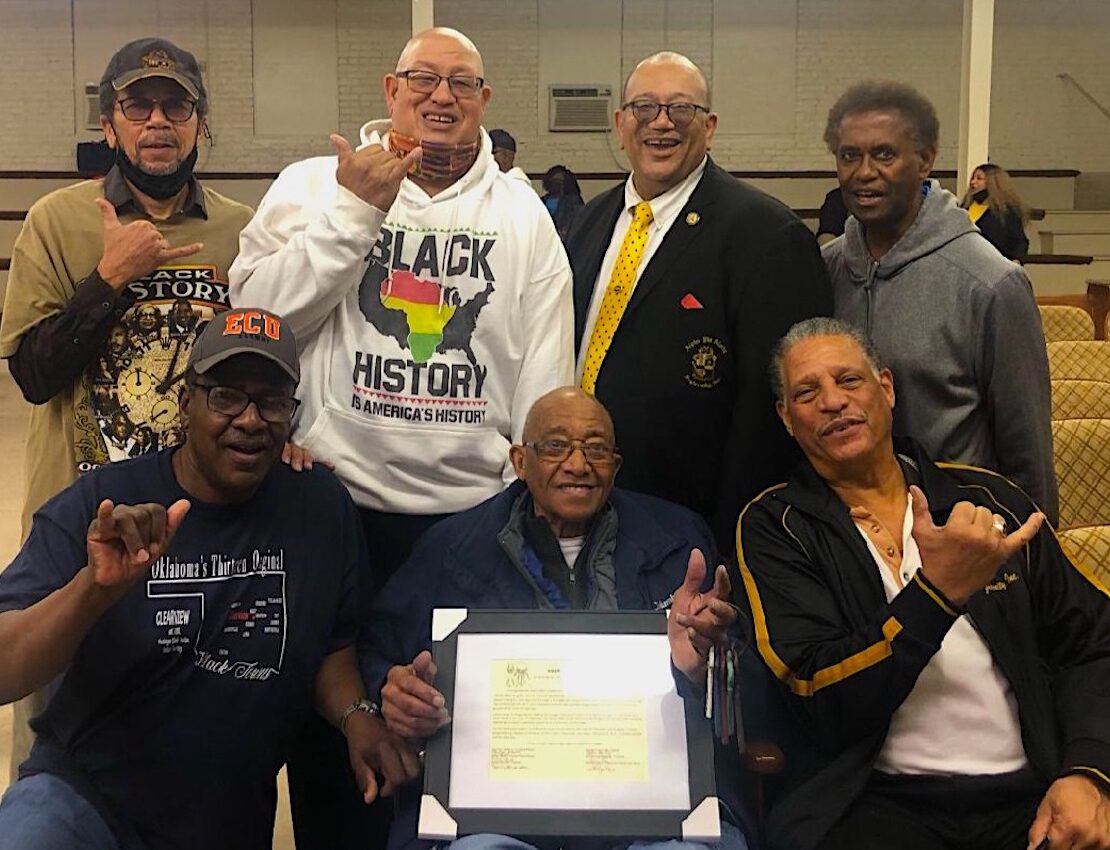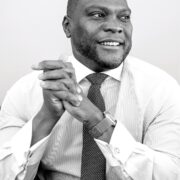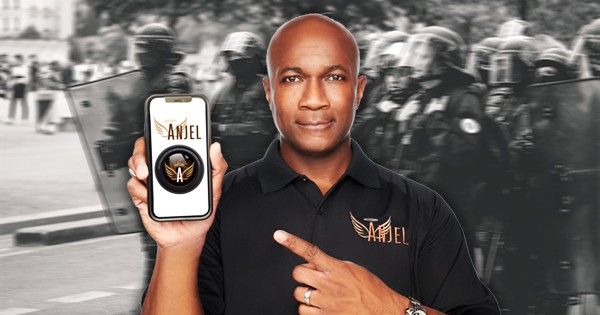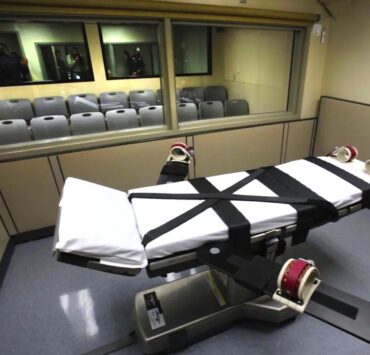By RUSSELL LACOUR
CLEARVIEW – Not long ago, I headed south out of Tulsa, destined for Clearview, one of 13 surviving Black townships in Oklahoma. The excursion turned out to be an enriching experience in a key chapter of the state’s Black history.
I knew that Clearview had been established in 1903 as one of Oklahoma’s original 50 Black Townships. But I was curious to discover more. A program on the culture and past of the town, featuring Clearview’s mayor and other supporters, is what prompted my sojourn.
My history lesson started as soon as I pulled onto a grassy dirt area around the Clearview community center. The building was originally constructed as a gymnasium in 1939 under the Works Progress Administration (WPA was an employment and infrastructure project of the Franklin Delano Roosevelt presidency). It was converted into a community center in 1988. The program they had organized was a fundraising event to keep the center open.
When I stepped into the building, I felt fully immersed in the culture of this historical Black enclave. The entire town seemed like it was in the room. One big attraction was a bazaar featuring various locally made products: homemade sweet potato pies, handmade pillows with the town’s name on them, and T-shirts emblazoned with pictures about the pride of being associated with Clearview. Later the organizers would offer a real downhome Oklahoma spread of food: beans and cornbread, fried fish, a dessert, and a drink, all for just $5.
Marilyn Jackson, Clearview’s mayor, gave a welcome that included some more historical details of the town. She explained that Clearview’s story goes back to years before statehood. It was first named Lincoln after President Abraham Lincoln. Because it had no trees, one of the council’s trustees pointed out the clear view offered of the city. And thus, the name.
Jackson then kicked off the program. It included a tribute to Johnny West, who spent a good deal of time in Clearview. (It’s the hometown of his wife.) The mayor presented West with the keys to the city, a plaque, and other gifts. Family, friends, and Alpha Phi Alpha Fraternity Brothers gave him a standing ovation.
The program’s centerpiece was a panel discussion about Life After Sports- Its Pros and Cons. The panel featured former Dallas Cowboy running back Felix Jones, former Atlanta Falcon linebacker Dewey McClain and Hall of Fame Sapulpa girls’ basketball coach Darlean Calip. Tulsa Booker T. Washington, high school coach and advisor Reginald Terry, was the moderator for the discussion.
Each panelist talked about the meaning of success and what it took to reach those levels. Emphasis was placed on the importance of having a backup plan because no matter how good an athlete might be, the game would eventually come to an end for them.
“Plant something now, or it’s going to grow a weed tomorrow,” Terry said. He also encouraged the students to learn a new word every day to broaden their vocabulary.
When asked for advice for young athletes, Terry encouraged them to stay humble. “Win without boasting and lose without excuses.”
In his presentation, Jones gave credit to his father and uncle for their undying support. He said he couldn’t fail. Jones announced he had purchased the Tate Brady Mansion in Tulsa. He explained that historians believe that Tate Brady was a member of the Ku Klux Klan, so he felt that Brady was likely rolling over in his grave over the idea that a Black man was now the owner of the building.
Jones said he renamed it the Skyline Mansion because of the view from many of the exterior windows. He said he plans to make it into a museum that houses information about places like Clearview. He wants to make the site available to organizations and individuals in the community for fundraising and similar activities.
Later, Jones commented on lessons learned from his football career. “It is a privilege to play sports,” Jones said. “Respect your coaches and teachers. They allow you to grow. Be ready and on point. You never know when you will be called on.” And allow the coach to coach, he added.
Calip, a four-time Oklahoma state champion, offered details that were important in her coaching. She said that besides sports, she encourages the players on her teams to follow rules of personal etiquette: tucking in shirttails, being dressed appropriately, speaking well, carrying themselves with dignity, and presenting themselves well overall.
She also gave credit to her grandparents. She said they taught her to work hard, be her best, instill expectations, treat everybody fairly, and don’t play favorites.
McClain said his golden rules are to respect authority and have a good attitude.
He said his mantra is RAP: Respect, Attitude, and Prayer. Be honest, have goals, and dream. Then, take the steps to make it a reality.
As part of the fundraising, the panelists were asked to sign footballs and basketballs for auction.
The event made me even more curious about Clearview. So, I did some more exploring.
I learned that two organizations have helped keep Clearview on the map over the years. One is the Oklahoma African American Educators Association, directed by Donnie and Shirley Nero, who call Clearview home. Another was the Clearview Rodeo which, until the last couple of years, had been an annual event. The late Romeo Alford Jr., a Clearview native, had run the rodeo. His namesake father started the rodeo. But since Alford Jr.’s death, the town has not held the rodeo.
According to a history booklet written by J.P. Owens, a longtime Clearview postal worker, John Grayson operated the Clearview Patriarch, the first newspaper printed for Clearview.
Clearview has a War Memorial on Main Street.
Clearview had a post office until November 1992. They were folded into the rural carrier for the Weleetka Post Office.
MORE INFO
Clearview is about an hour’s drive south from Tulsa. Take US 75 South from Tulsa and to Interstate 40 West toward Henryetta. There is a Clearview exit. For more information on how you can donate to the Clearview Community Center, contact Shirley Nero at 918-698-6037.











